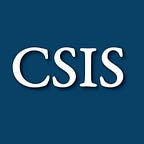Fifth DPRK Nuclear Test
By Sharon Squassoni and Amelia Armitage
September 9, 2016
On September 9, North Korea conducted an underground nuclear test — its second this year and the fifth since 2006. This latest nuclear test follows months of missile launches, even as the United Nations and individual states have imposed increasingly tough sanctions on Pyongyang.
Q1: What do we know so far about the latest test?
A1: The test is reportedly the most powerful yet, though the precise yield is unknown. Current yield estimates are above 10 kilotons, based on reports of a seismic event measuring 5.3 on the Richter scale. In a statement reported by the Korean Central News Agency, the Democratic People’s Republic of Korea (DPRK) Nuclear Weapons Institute declared that the test had demonstrated the capability to successfully standardize and miniaturize its warheads to be mounted on a missile. The Nuclear Weapons Institute statement also claimed an ability to produce warheads “at will” — that is, in increasingly larger quantities. While the notion of the North mass-producing nuclear warheads is potentially frightening, previous statements have featured exaggerated claims (such as the January statement that the test was a hydrogen bomb). Nonetheless, producing a nuclear warhead small and light enough for a ballistic missile is a significant technical challenge that the North Koreans have been working to resolve for years. The other piece of the puzzle that would make North Korea far more dangerous to the United States would be successful deployment of a ballistic missile with a range reaching the U.S. mainland territory.
Q2: What has been the initial international response?
A2: President Barack Obama declared that “the United States does not, and never will, accept North Korea as a nuclear state” and called for “additional significant steps, including new sanctions, to demonstrate to North Korea that there are consequences to its unlawful and dangerous actions.” The Chinese Foreign Ministry also condemned the test, called for all sides to remain calm and avoid confrontation, and called for a resumption of negotiations under the Six-Party Talks framework, which North Korea abandoned in 2009. President Park Geun-hye of South Korea condemned the “fanatical recklessness of the Kim Jong-un regime” and called for additional sanctions. The Russian Foreign Ministry also issued a statement “insist[ing] that the North Korean side end its dangerous and reckless misadventures, comply in good faith with all UN Security Council directives, completely abandon its nuclear missile programmes and return to the NPT [Non-Proliferation Treaty] regime.” All condemned North Korea’s violations of existing Security Council resolutions. The UN Security Council convened immediately to consider responses.
Q3: What additional measures might the Security Council or individual states impose?
A3: Following the last North Korean nuclear test in January, the UN Security Council passed Resolution 2270, which included blanket cargo inspection requirements (regardless of whether there is cause for suspicion), a ban on providing North Korea with small and light arms, iron, iron ore, coal, gold, and other rare earth minerals, and a blanket restriction on the sale or transfer of any item (except food or medicine) that could contribute to the DPRK’s military capabilities. UNSCR 2270 also imposed a ban on the activities of North Korean banks overseas, as well as a ban on joint ventures with North Korean banks. UNSCR 2270, however, left open several loopholes, including for humanitarian aid and transactions deemed to be “exclusively for livelihood purposes” of those goods and individuals unrelated to prohibited activities. Russia also ensured that Russian coal could transit a North Korean port, while certain civilian aviation fuels were also exempted. New sanctions could target these loopholes and add individuals and institutions to the blacklists.
As with previous sanctions measures, the international community will once again call for China, North Korea’s primary trading partner, to enforce them rigorously. In its June 2016 report on implementation of UNSCR 2270, China noted its opposition to “arbitrary interpretation or expansion of the sanctions,” and when asked about additional sanctions in its September 9 press conference, the Chinese Foreign Ministry spokesperson was, at best, lukewarm about the prospect. Vigorous enforcement of sanctions by China could help shift Pyongyang’s assessment that its missile and nuclear capabilities are worth the cost. At the same time, all states with a stake in reducing and eventually eliminating North Korea’s weapons of mass destruction capabilities for the sake of peace and security in East Asia need to make a credible offer to resolve some of the long-standing issues on the negotiating table.
Sharon Squassoni is a senior fellow and director of the Proliferation Prevention Program at the Center for Strategic and International Studies (CSIS) in Washington, D.C. Amelia Armitage is a research assistant with the CSIS Proliferation Prevention Program
Critical Questions is produced by the Center for Strategic and International Studies (CSIS), a private, tax-exempt institution focusing on international public policy issues. Its research is nonpartisan and nonproprietary. CSIS does not take specific policy positions. Accordingly, all views, positions, and conclusions expressed in this publication should be understood to be solely those of the author(s).
© 2016 by the Center for Strategic and International Studies. All rights reserved.
Originally published at https://www.csis.org/analysis/fifth-dprk-nuclear-test
